We don’t mean Asian food, of course! Korean intern Su-gyeong is a devotee of Korean film. She has agreed to pick out her top three. This week, Mr Sunshine, set in the time of the Korean movement for independence after the fall of the Joseon Dynasty in Hanseong (present-day Seoul)…
The popularity of K-culture, including K-drama, K-film, and K-pop, is growing around the world, especially with the popularity of Korean media on Netflix. But did you know that K-culture is deeply connected to Korean history? Korean history is the root of K-culture, and it’s a very important part. If you watch movies and dramas based on the historical background of Korea, you will experience an unprecedented culture.
That’s why our Korean intern journalist, Su-gyeong, has selected three movies and dramas that she thinks are a must-watch for Valencia Life readers. Take a look and experience Korean culture, or K-culture, as it is known.
The following are the criteria for selecting the movies I recommend.
1) It has a clear historical background
2) It should be interesting to people from different cultures than Korea.
3) The historical events and property of artwork must be distinct.
Therefore, I carefully selected the contents based on these criteria.
My recommendations are Mr Sunshine, The Throne and Roaring Currents.
There were many more movies and dramas that I wanted to recommend to you, but for concise and
clear delivery, I had to choose only three. However, I believe that these three contents will deeply
impress you.
In this series, I’ll be introducing you to each of them one by one, and I’m sure you’ll enjoy them In the
following recommendations I will guide through each drama one by one even more with the
commentary of Korean journalist Su-gyeong!
You may already know this drama because it has aired worldwide on Netflix. It combines Korean
sensibility and artistry, which I’ve watched more than 3 times.
Mr Sunshine Overview
Peak Viewer ratings: 18.1% (Source: Nielsen Korea)
Era: Modern era (late 1800s – early 1900s)
During the late 1800s and early 1900s, Spain went through a period of political instability and colonial
losses. After a short First Republic in 1873, Spain was ruled by King Alfonso XII in 1874, and
in 1898, Spain suffered a decline when it lost a war against United States and lost its colonies Cuba, Puerto Rico, and the Philippines.
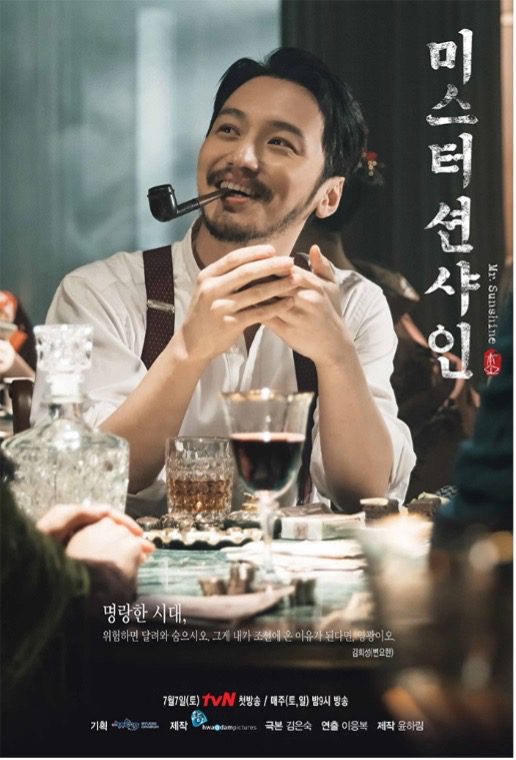

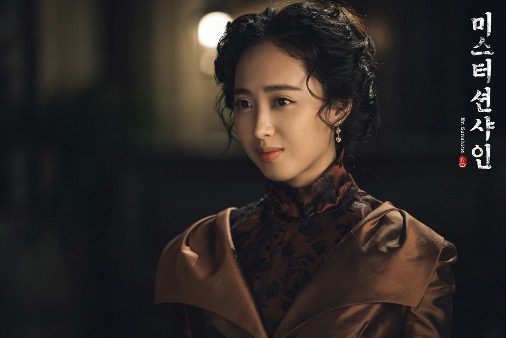
Genre: Period drama, Romance, Revenge, War, Military, Politics
About: A drama about a boy, Eugene Choi, who travelled to the United States aboard a US. warship
during the Western Disturbance in the Shinmi Year (1871) and returns to the country that abandoned
him, Joseon (present Korea), as an American soldier where he is stationed as an officer in the US Navy.
(Source: TVN)
Airing: 2018.07.07~2018.09.30. 24 episodes, TVN
Plot: The lonely love story of Eugene, a U.S. Navy officer stationed in Joseon, and Go Ae-sin, the last bloodline of the ‘Go’ family of Joseon. The story of the nameless heroes, a volunteer army called ‘ui byeong’, who struggle to regain sovereignty over Joseon, which has fallen to Japan in the early
1900s.
Main Actors: Lee Byeong-heon (Eugene Choi), Kim Tae-ri (Go Ae-sin), Byun Yo-han (Kim Hui-
seong), Yoo Yeon-seok (Gu Dong-mae), Kim Min-jeong (Kudo Hina)
Crew: Director Lee Eung-bok, Writer Kim Eun-sook
Su-gyeong’s star rating : 4.5/5
Why I recommend this movie
Mr Sunshine is a content that well reflects historical background of past Korean era (from the end of
the Joseon Dynasty to the Daehan Empire, present Korea). The narrative of each character is closely
connected to the events as the story unfolds, with the actors’ phenomenal acting skills which allows
you to become deeply immersed in the characters as the story progresses. Particularly, you can feel
the beauty of the Korean language well with the actors’ luxurious Korean language. I also recommend this drama because it features traditional Korean costumes of different classes of Korean society,
from slaves to royal members, as well as Korean food culture that continues to this day, including rice
cakes, baeksuk (Korean chickensoup) and coffee.
Movie commentary by Su-gyeong
The drama is set in a time when Joseon dynasty (today’s Korea) was modernising and developing
at the same time as it was about to lose its sovereignty to Japan (Japan-Korea annexation took place in 1910).
The drama shows characters beginning to learn English in Western academies and experiencing
Western goods such as electric lights, coffee, and portable clocks for the first time. Also, it realistically
describes the actions of pro-Japanese factions, and Japanese pressure on the Korean Emperor.
Gojong Korea was annexed by Japan in 1910 and remained under Japanese colonisation until
August 15, 1945.
An interesting aspect of this drama is the way the characters speaking in Korean. In Korea, where
politeness and courtesy are highly valued, the honorific system is well organized. First, if you watch
the drama, you’ll notice that the characters don’t just call people by their first name if they have a
higher status than them. Even when speaking to their subordinates, they say “Ja-ne,” “Gwi-ha,” “geu-
dae” etc. instead of their name, because they respect each other under the influence of Confucian
culture.
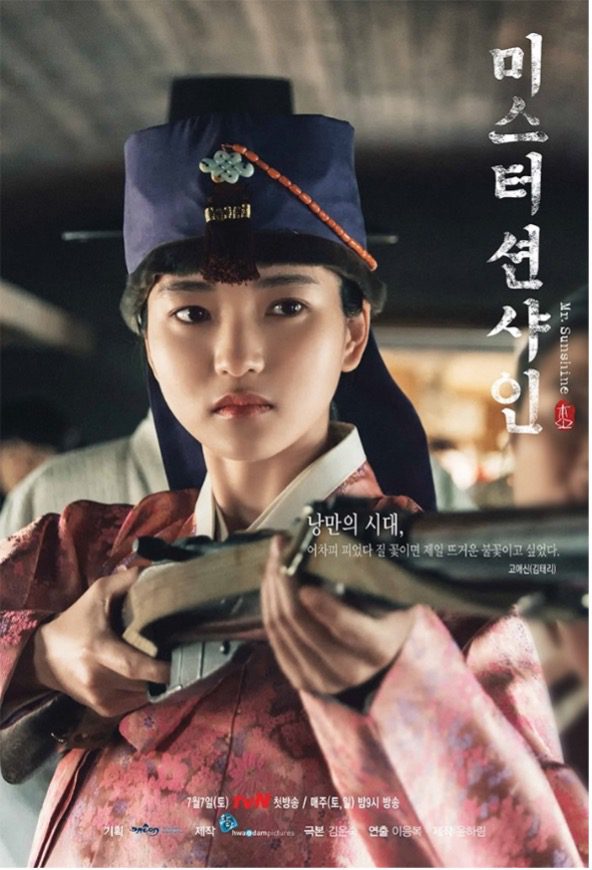
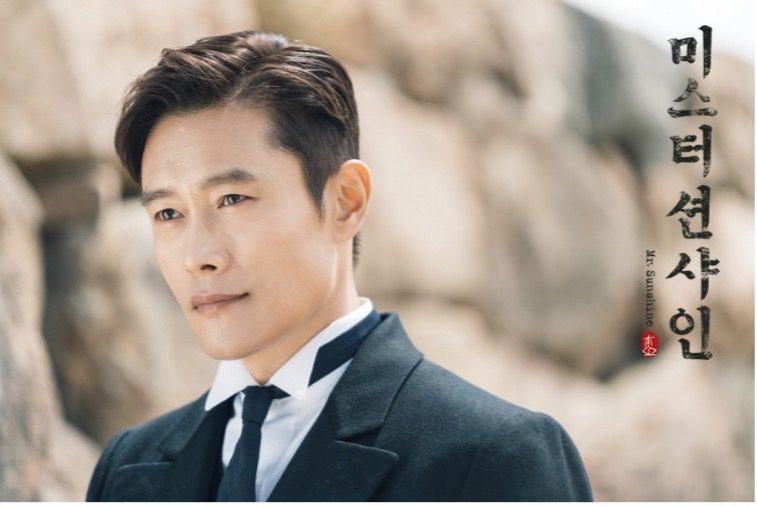
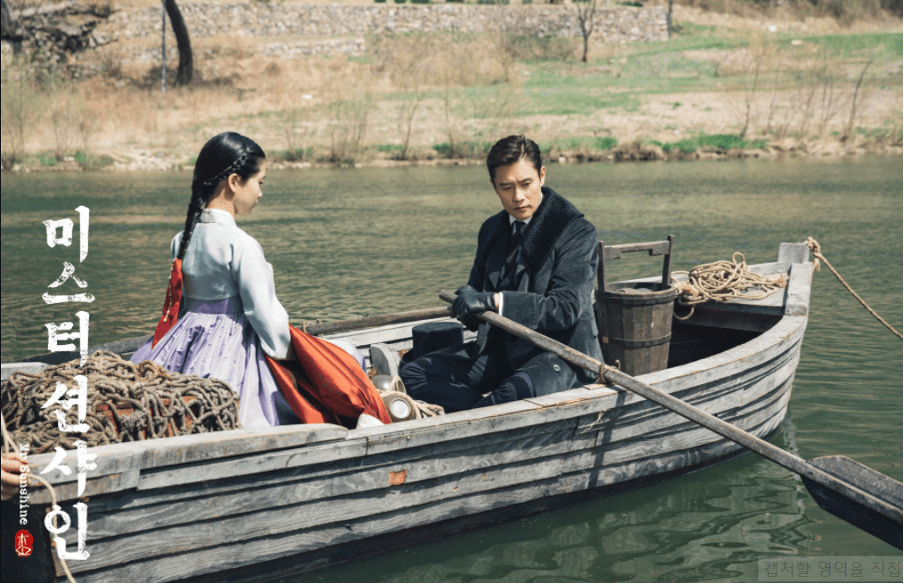
Also, Korean honorifics are characterised by changing the form of the predicate.
In particular, sentences ending in “-Hao”, which is the most common form of speaking in this drama, is
a formal way of honouring the listener and was commonly used until the early 20th century. It’s rarely
used today, but it’s still common in product descriptions, warnings in public places, and exam
questions in Korea. Nowadays, the colloquial and more friendly sentence ending in “-Haeyo” is used
much more often. (Source: A Study of Honorifics in Recent Korean: Focusing on New Novels of the
Flowering Period, Lee Kyeong-woo, 1990, Graduate School of Korean Language and Literature,
Ehwa Womans University).
The language of the film
Look at the difference in feeling.
(meaning)The moon is so beautiful.
(pronunciation)
- “Dal-i cham yeppeu-o.” (sentence ending in “-Hao”)
- “Dal-i cham yeppeu-neyo.” (sentence ending in “-Haeyo”)
- (Kim Hui-seong’s line (sentence ending in “-Hao”))
- 난 원체, 무용한 것들을 좋아하오. 달, 별, 꽃, 바람..웃음, 농담.. 그런 것들. 그렇게 흘러가는대로 살다,
멎는 곳에서 죽는 것이 나의 꿈이라면 꿈이오.
(pronunciation)
“Nan wonche, mu-yonghan geotdeureul joa-ha-o. Dal, byeol, kkot, baram.. useum, nongdam..
geureon geotdeul. Geureoke heulleoganeundaero salda, meojneun goseseo jukneun geosi naui
kkumi-ramyeon kkum-i-o.”
(meaning) I like the original, the useless things. The moon, the stars, the flowers, the wind, laughter,
jokes… things like that. If my dream is to live as it flows and die where it stops, it’s a dream.
The tone of voice is a bit more formal, and you can understand that characters are speaking with respect.
Mr Sunshine’s delicate metaphorical lines
Another point that can be found in this drama is the characters’ use of comparisons. In addition to the
quotes presented, you can hear many other beautiful figurative expressions in this drama.
(Kudo Hina’s line describing coffee to Ae-sin, a Korean)
“처음엔 쓴맛만 나던 것이 어느 순간 시고 고소하고 달콤해지죠. 심장을 뛰게 하고 잠 못 들게 하고
무엇보다 아주 비싸답니다. 마치 헛된 희망 같달까요? 헛될수록 비싸고 달콤하죠. 그 찰나의 희망에
사람들은 돈을 많이 쓴답니다.”
“Something that’s bitter at first becomes savoury, aromatic and sweet at some point. It makes your
heart race, keeps you awake, and above all, it’s very expensive. It’s like a vain hope? The more vain it
is, the more expensive and sweet it is. People spend a lot of money for that fleeting hope.”
(Ae-sin’s metaphor line for a flower)
“나도 꽃으로 살고 있소. 다만 나는 불꽃이오. 그렇게 환하게 뜨거웠다가 지려하오. 불꽃으로”
“I live as a flower, but I am a flame, just I’m about to burn brightly and then burn out. Like a flame.”
(Eugene’s figurative expression about love)
-(애신)”러브가 무엇이오? 벼슬보다 좋은거라 하더이다.”
-(유진)”혼자는 못하오. 함께할 상대가 있어야해서. 총쏘는 것보다 어렵고, 그보다 더 위험하고 그보다
더 뜨거워야 하오.”
- (Ae-sin) “What is ‘love’? It is said to be better than a government post.”
- (Eugene) “You can’t do it alone. It’s harder than shooting a gun, more dangerous than that, and
hotter than that.”
The culture of ‘Jeong’ in Korean dramas such as Mr Sunshine
In Mr Sunshine, we are able to look into the Korean culture of ‘Jeong’. While there is no perfect
Western equivalent word to ‘Jeong’, it is an important concept in Korean culture. It’s a complex
concept, but it’s about caring, taking care of each other, and being together.
Here are a few scenes from the drama where you can feel the Korean spirit of Jeong.
- The scene where the restaurant owner gives Eugene a bigger portion of chicken ‘baeksuk’
for helping the Joseon volunteer army - The scene where the Chu-no workers (men who chases a runaway slave) purposely don’t
capture Eugene, a little boy slave, when he is on the run. - Go Ae-sin’s grandfather distributes food to his neighbours in need.
In this way, you can experience the Korean culture of helping neighbours and being full of kindness
through Mr Sunshine.
Conclusion
Mr Sunshine focuses on the modernisation of the former Korean Joseon Dynasty and the activities of the volunteer army (called ui-byeong against Japan, depicting the struggle and sacrifice to regain
sovereignty. The drama is valuable in that it colourfully recreates traditional Korean clothing, food, and
language to bring the culture of that time period to life. I recommend watching this drama to
experience a new culture and the time period, and we’re sure you’ll enjoy it more if you know and take on board the above.
The drama is available on Netflix with English and Spanish subtitles, and you can also download
English subtitles from OpenSubtitles.org.
In our next article, I will be back with an even more interesting Korean historical movie, The
Throne! Thank you for reading and daeum-e manna-yo! 다음에 만나요